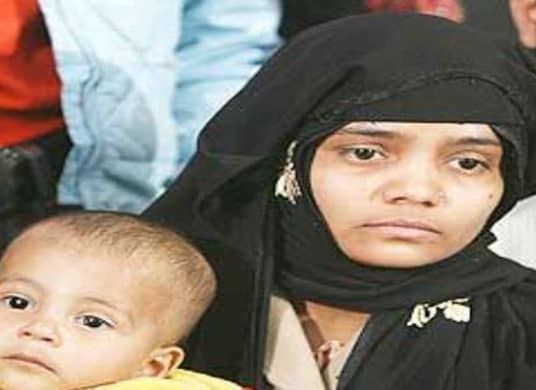The Supreme Court on Monday agreed to list on April 28 the plea seeking to constitute an independent expert committee under the chairmanship of a former Supreme Court judge to inquire into the killing of Atiq Ahmed and his brother Ashraf in police presence in Uttar Pradesh’s Prayagraj.
Advocate Vishal Tiwari mentioned before a bench headed by Chief Justice of India DY Chandrachud seeking an urgent hearing of his plea and apprised the court that the matter was scheduled to be listed today.
CJI Chandrachud said that many matters could not get listed as five judges were not available as they were unwell.
Advocate Vishal Tiwari mentioned in SC that his plea sought a probe into the extra-judicial killings in Uttar Pradesh.
In his plea, Tiwari sought to constitute an independent expert committee under the chairmanship of a former Supreme Court judge to inquire into the killing of Atiq and Ashraf.
Advocate Vishal Tiwari has also moved a plea in Supreme Court seeking to constitute an independent expert committee to inquire into the 183 encounters which had occurred since 2017 as stated by the Uttar Pradesh Special Director General of Police (Law and Order) and also to inquire into the police custody murder of Atiq and Ashraf, gangster-turned-politicians.
Gangster-turned-politician Atiq Ahmed and his brother Ashraf were shot dead while they were being taken to a hospital in Prayagraj on April 15 night amid police presence.
Advocate Vishal Tiwari, in his public interest litigation, has also sought to issue direction to unearth the fake encounters by directing the Central Bureau of Investigation to investigate, collect and record the evidence in the Kanpur Bikru Encounter case 2020 in which Vikas Dubey and his aides were killed by police in the encounter as the inquiry commission could not record the evidence in rebuttal of police version and has filed the inquiry report in absence of that.
“The DARE DEVILS which Uttar Pradesh police has tried to become,” the petition said
The petitioner said that the his public Interest Litigation is against the violation of rule of law and oppressive police brutality being perpetrated by Uttar Pradesh.
The petitioner has apprised the court that he has approached the court in a matter pertaining to the Kanpur encounter with Vikas Dubey and said that a similar incident was repeated by Uttar Pradesh police that is encounter killing of Asad son of Atiq Ahmad gangster turned politician and the killing of Atiq Ahmad and his brother Ashraf by private assailants when they were in police custody and were taken for medical examination.
The petitioner said that such incidents are a severe threat to the democracy and rule of law, and such acts are establishments of anarchy and prima facie development of the police state.
He also mentioned that extra-judicial killings or fake police encounters have been very badly condemned under the law and such things can not exist in a democratic society the police cannot be allowed to become a mode of delivering final justice or to become a punishing Authority.
“The power of punishment is only vested in the Judiciary. The police when becomes DARE DEVILS then the entire Rule of law collapses and generates fear in the mind of people (ANI)
Read More: http://13.232.95.176/


